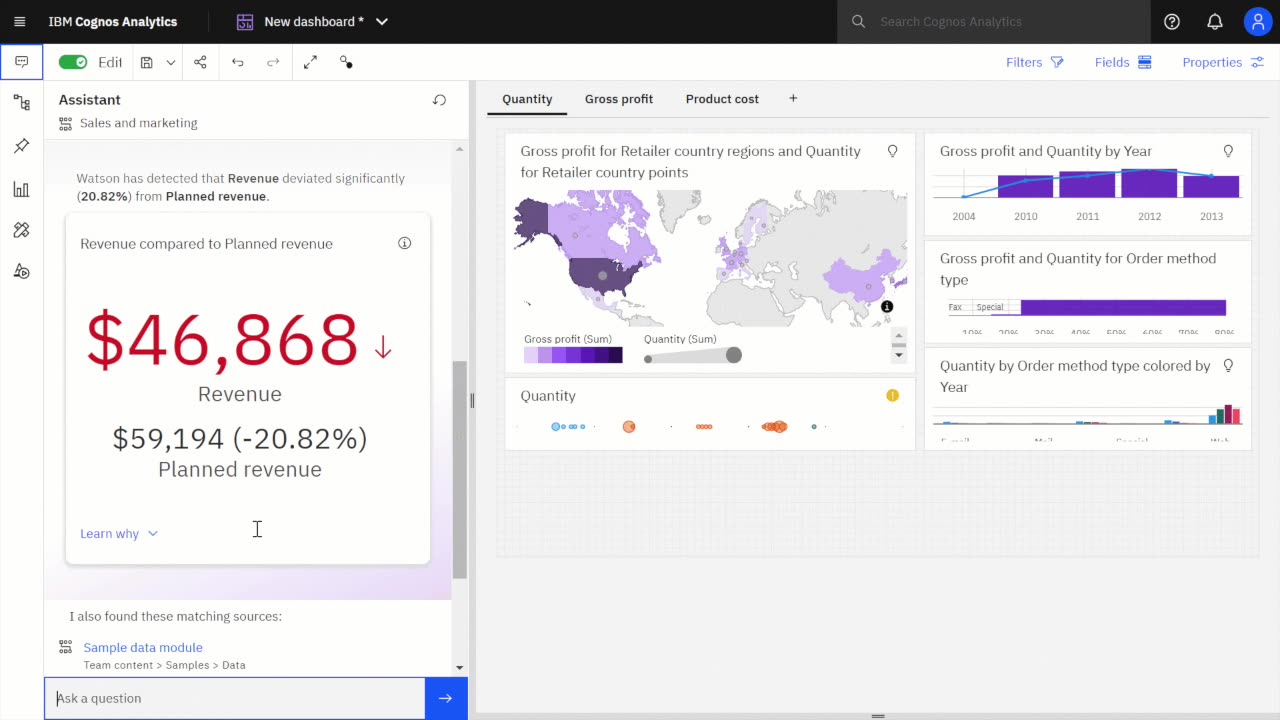Premium Only Content

IBM CEO Arvind Krishna Reassures: A.I. Job Concerns Eased with Declining Populations
Discover the fascinating insights shared by IBM CEO Arvind Krishna as he addresses concerns about artificial intelligence (A.I.) taking over jobs. In a recent interview with Nikkei, Krishna highlights the significance of declining working-age populations around the world and explains why relying on humans to perform routine tasks that A.I. can handle is no longer feasible. He emphasizes the need for technology to take on mundane work, enabling humans to engage in higher-value tasks. Moreover, Krishna envisions job creation as a result of A.I., particularly in areas that generate more value.
Krishna's viewpoint echoes the sentiments expressed by former Google CEO Eric Schmidt at the Wall Street Journal CEO Council Summit. Schmidt emphasizes the impending shortage of human resources for jobs due to declining birth rates, underscoring the need for A.I. to fill the gaps and enhance efficiency in labor markets.
While acknowledging that A.I. may result in job losses in the short term, Schmidt argues that its overall impact will be positive, driving productivity and compensating for labor shortages in certain professions.
Goldman Sachs estimates that around 300 million full-time jobs could be exposed to automation by A.I., yet it also predicts the emergence of new jobs and increased productivity. It is not unprecedented for technological innovation to bring about temporary hardships while benefiting society in the long run.
MIT economics professor Daron Acemoglu stresses the importance of a robust labor relations movement to address the threat to white-collar jobs posed by A.I. He advocates for an environment that empowers workers, suggesting a collaborative approach similar to Germany's labor system, rather than the more contentious company-focused approach prevalent in the United States.
The concerns surrounding A.I. have prompted notable figures like Elon Musk, Steve Wozniak, and Acemoglu to sign an open letter advocating for careful consideration of A.I. tools and their potential risks. The letter urges against delegating critical decisions to unelected tech leaders and emphasizes the need for positive effects and manageable risks before developing powerful A.I. systems.
Sam Altman, CEO of OpenAI, challenges the notion that A.I. will render humans purposeless and jobless. Altman believes that A.I.'s progress will not eliminate the need for human work, emphasizing the importance of adapting public policy to ensure people are not worse off in the face of socioeconomic change.
The dynamic landscape of A.I. has even led to innovative ideas, such as Worldcoin, a crypto startup cofounded by Altman. With the possibility of A.I. taking numerous jobs, Worldcoin aims to serve as a distribution mechanism for universal basic income payments if governments decide they are necessary. Additionally, the company focuses on verifying human identity online, distinguishing between humans and A.I. bots.
Krishna acknowledges the transformative potential of A.I. within IBM, announcing a slowdown or suspension of hiring in non-customer-facing roles, with the expectation that up to 30% of these positions could be replaced by A.I. and automation within a five-year timeframe.
Join us in this captivating video as we delve into the insightful perspectives shared by industry leaders and experts, exploring the impact of A.I. on job markets, the need for adaptable public policies, and the potential for both challenges and opportunities in the era of artificial intelligence. Don't miss this thought-provoking discussion that sheds light on the future of work and the role of A.I. in shaping our society.
-
 4:33:48
4:33:48
tacetmort3m
1 day ago🔴 LIVE - THE ZONE KEEPS PULLING ME BACK - STALKER 2 - PART 15
51K12 -
 22:45
22:45
Brewzle
17 hours agoI Went Drinking In A Real Bourbon Castle
35K3 -
 48:36
48:36
PMG
1 day ago $2.64 earned"Parkland Parent Speaks Out On Kamala Harris Using Victims"
27.6K3 -
 4:06
4:06
The Lou Holtz Show
15 hours agoCoach Lou Holtz’s Heartfelt Christmas Message 🎄 | Family, Faith & Notre Dame Spirit 💚 #christmas
20.6K -
![ROSEANNE BARR - Her Journey, TRUMP, and the MAGA GOLDEN AGE! [INTERVIEW]](https://1a-1791.com/video/s8/1/M/m/B/2/MmB2v.0kob.1-small-ROSEANNE-BARR-Her-Journey-T.jpg) 51:35
51:35
Dr Steve Turley
1 day ago $19.06 earnedROSEANNE BARR - Her Journey, TRUMP, and the MAGA GOLDEN AGE! [INTERVIEW]
55.5K54 -
 57:38
57:38
The Tom Renz Show
13 hours agoMerry Christmas - The Tom Renz Show Christmas
92.2K17 -
 2:59:10
2:59:10
Wendy Bell Radio
1 day agoThe Bridge Too Far
170K301 -
 1:03:45
1:03:45
Donald Trump Jr.
1 day agoHappy Festivus: Airing Our Grievances and Stopping The Swamp w/Sean Davis | TRIGGERED Ep.201
429K549 -
 1:30:30
1:30:30
Game On!
1 day ago $8.09 earnedTop 5 things you need to know for Sports Christmas!
75.4K5 -
 1:58:10
1:58:10
Robert Gouveia
1 day agoMatt Gaetz REJECTS Report, Sues Committee; Luigi Fan Club Arrives; Biden Commutes; Festivus Waste
299K236